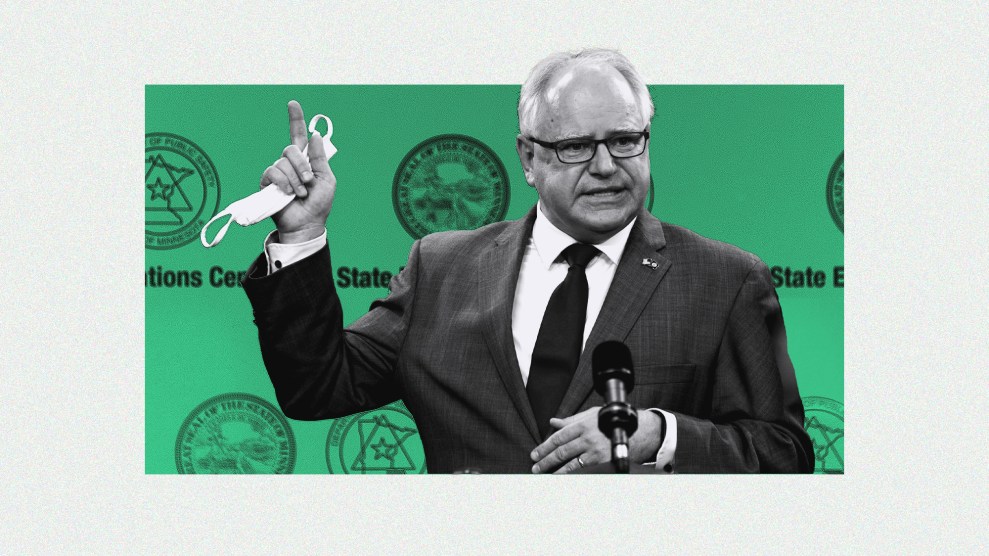
Mother Jones; Evan Frost/Minnesota Public Radio/Pool/AP
There are more than 400,000 people with Long Covid in Minnesota—the home state of Democratic vice presidential nominee Gov. Tim Walz—according to the state’s health department. A post-viral illness with serious impacts to quality of life and ability to work, Long Covid is also a workers’ rights issue: not being able to rest during and after a Covid infection makes people more likely to develop it.
Under Walz’s leadership, in May of last year, Minnesota became the first state to dedicate funding to Long Covid and associated conditions, including myalgic encephalomyelitis/chronic fatigue syndrome and postural orthostatic tachycardia syndrome. Billy Hanlon, the Minnesota ME/CFS Alliance‘s director of advocacy and outreach, says that Walz was instrumental in pushing for the legislation.
ME/CFS and POTS are not new conditions, but patients with both have long experienced their symptoms being dismissed by physicians. A 2016 study estimates that around one in four people with ME/CFS are largely confined to bed by their symptoms.
Now, with Walz a prospective Vice President, Long Covid and related conditions may have a more highly placed advocate than ever before—with a demonstrated record of working to combat this post-infectious disease. Hanlon says a federal response “should include increased baseline funding to the NIH and federal health agencies to support the expedition of clinical interventions.”
“As Vice President, we hope and urge Gov. Walz to continue to prioritize this crisis that is impacting over 20 million Americans and only growing,” Hanlon told Mother Jones. “It will take our highest levels of leadership at the federal level to respond with the urgency that this crisis demands.”
Walz is not the only pro-labor politician pushing for more funding to address Long Covid: just last week, Vermont Sen. Bernie Sanders introduced a bill that would allocate $1 billion annually across a decade for Long Covid–related research.
Currently, the only way to completely avoid Long Covid is to not get Covid-19, which reinforces the importance of mask-wearing and adequate air filtration. But with more research funding, doctors may be able to develop a better understanding of how to manage Long Covid symptoms—which can include post-exertion malaise, heart palpitations and hives—more quickly. “Just as COVID-19 is not going away,” Walz wrote in his 2023 funding proposal, “Long COVID is not going away.”












